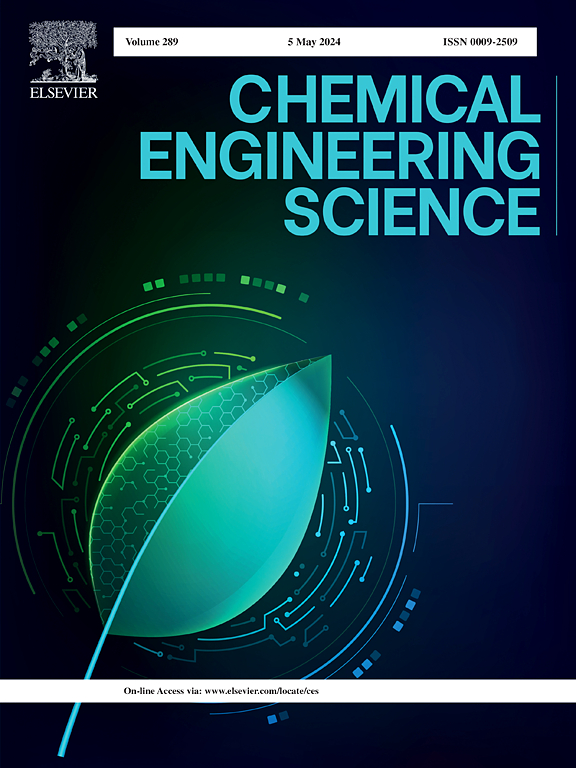Hybrid model predictive and active disturbance rejection control for robust and efficient control of extractive distillation process
IF 4.3
2区 工程技术
Q2 ENGINEERING, CHEMICAL
引用次数: 0
Abstract
A robust and efficient advanced control system is crucial to ensure safe operation and improve the production efficiency of extractive distillation processes. To address the challenges posed by multi-variable, nonlinear, and coupled problems encountered in the extractive distillation process, a novel robust and efficient control strategy that fuses model predictive control (MPC) and active disturbance rejection control (ADRC) was proposed. The MPC control matrix was optimized using the multi-objective genetic algorithm, enhancing the control performance and robustness of the MPC. The ability to handle nonlinearity in the ADRC was enhanced by adopting a nonlinear error feedback control law, and the debugging process of the ADRC was simplified using a linear extended state observer. MPC and ADRC were fused based on weighted controllers. An evaluation based on the integral of squared error and integral of absolute error reveals that the MPC-ADRC fused control strategy demonstrates significantly superior dynamic control performance compared to other control structures, highlighting heightened robustness and stability. Thus, this study offers novel references and insights for the design and optimization of dynamic control strategies in extractive distillation processes.
混合模型预测和自抗扰控制用于萃取精馏过程的鲁棒高效控制
一个强大、高效的先进控制系统是保证萃取精馏过程安全运行和提高生产效率的关键。针对萃取精馏过程中存在的多变量、非线性和耦合问题,提出了一种融合模型预测控制(MPC)和自抗扰控制(ADRC)的鲁棒高效控制策略。采用多目标遗传算法对MPC控制矩阵进行优化,提高了MPC的控制性能和鲁棒性。采用非线性误差反馈控制律增强了自抗扰控制器的非线性处理能力,并采用线性扩展状态观测器简化了自抗扰控制器的调试过程。在加权控制器的基础上融合MPC和ADRC。基于误差平方积分和绝对误差积分的评估表明,MPC-ADRC融合控制策略与其他控制结构相比具有显著的动态控制性能,突出了更高的鲁棒性和稳定性。因此,本研究为萃取精馏过程动态控制策略的设计和优化提供了新的参考和见解。
本文章由计算机程序翻译,如有差异,请以英文原文为准。
求助全文
约1分钟内获得全文
求助全文
来源期刊

Chemical Engineering Science
工程技术-工程:化工
CiteScore
7.50
自引率
8.50%
发文量
1025
审稿时长
50 days
期刊介绍:
Chemical engineering enables the transformation of natural resources and energy into useful products for society. It draws on and applies natural sciences, mathematics and economics, and has developed fundamental engineering science that underpins the discipline.
Chemical Engineering Science (CES) has been publishing papers on the fundamentals of chemical engineering since 1951. CES is the platform where the most significant advances in the discipline have ever since been published. Chemical Engineering Science has accompanied and sustained chemical engineering through its development into the vibrant and broad scientific discipline it is today.
 求助内容:
求助内容: 应助结果提醒方式:
应助结果提醒方式:


